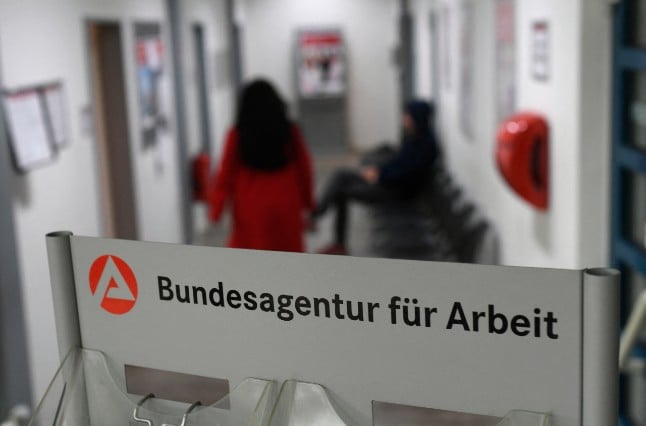Since losing her job as a school bus driver in November, German mum-of-two Viola Auer has had to rely on the generosity of neighbours and a small disability allowance to get by during the pandemic.
“Who cares about us, Germany's working poor?” she asked.
Auer, 47, is one of many Germans in so-called mini-jobs — part-time, easily terminated contracts that allow workers to earn a maximum of 450 euros ($545) a month.
Though flexible and tax-free, these jobs are also extremely precarious and not covered by Germany's vaunted furlough scheme.
As Europe's top economy feels the strain from months of coronavirus restrictions, these workers have been declared the “biggest losers of the crisis” by the German Institute for Economic Research.
When she lost her job, Auer received no severance pay.
“I'm keeping my head high and trying to keep going,” she said.
Auer is now applying for welfare benefits and looking for another part-time job in her home town of Singen, southwestern Germany.
It is a familiar story for many “mini-jobbers”, the majority of whom are women.
The latest official figures show that more than 870,000 mini-jobs have disappeared in the last year, bringing the total to its lowest level since 2004.
Ticking time bomb
Vacancies have dwindled particularly in the hotel and restaurant sectors, which have been among the hardest hit by shutdowns imposed to slow the infection rate.
One of those affected is 67-year-old Matthias Eichner, who took on a part-time catering job in the eastern city of Goerlitz four years into his retirement.
“At my age, I'd have liked to be peacefully seeing to my garden, but with a pension of only 1,000 euros, I don't have a choice,” he sighed.
But the Covid-19 curbs have forced his employer to drastically reduce his hours.
Around a quarter of Germany's mini-jobbers are at least 60 years old and 91 percent of them have no higher education.
Having increased in number by 43 percent between 2003 and 2019, mini-jobbers now make up 7.6 million of Germany's 42 million workers.
Mini-jobs were invented in the 1970s, but proliferated after the liberalisation of the labour market under former chancellor Gerhard Schröder in the early 2000s.
They are one of the reasons why Germany's unemployment rate has fallen from a spike of 11.5 percent in 2005 to record lows of around five percent before the pandemic struck.
In January, the jobless rate stood at six percent.
Yet many believe that the insecure mini-jobs are a ticking time bomb which will leave many workers with insufficient pensions on which to retire.
Eichner said the existence of mini-jobs was “shameful” and that Germany should provide pensions that allowed people “to live in dignity”.
'Miserable'
Such concerns have been sharpened by the social crisis caused by the pandemic.
“Mini-jobs are not a good long-term solution,” Karin Schulze Buschoff of the German Institute for Economic and Social Sciences (WSI) told AFP.
She cautioned that such workers could face poverty in their old age, not having paid as much in social security contributions over the years as those in standard employment.
She suggests lowering the 450-euro earnings cap in order to make mini-jobs less attractive.
By contrast, Holger Schäfer of the business-friendly German Economy Institute (IW) calls for the removal of restrictions.
“There could be more stable employment if those people could work more hours,” said Schäfer. While Germany's centre-left Social Democrats and the Green party advocate reforming and improving the mini-jobs system, the far-left Die Linke party is calling for it to be abolished entirely ahead of parliamentary elections this September.
“Even before the crisis, we knew that mini-jobs had miserable working conditions and salaries nobody could live on,” the Left's labour policy spokesperson Sabine Zimmermann told AFP. “The pandemic just exposed that lack of protection.”


 Please whitelist us to continue reading.
Please whitelist us to continue reading.
Member comments